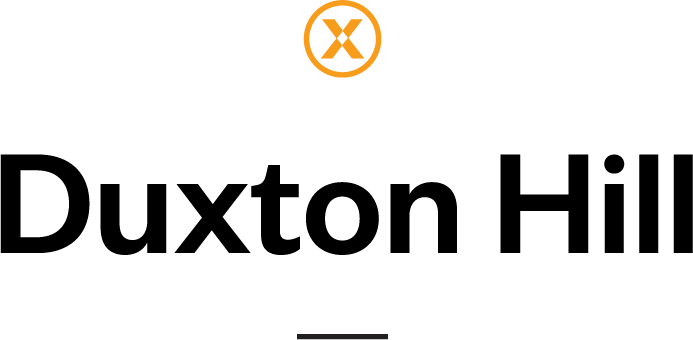On Monday 30 October, the New South Wales Court of Appeal handed down a judgment clarifying an important point of law for directors of companies. The cross-appeal in Garslev Holdings Pty Ltd v Overdean Developments Pty Ltd [2023] NSWCA 259 explored the personal liability of a director in circumstances where their company had been found liable under the second limb of Barnes v Addy. Ultimately, the court found that if a director, even a sole director, is acting only within their capacity as a director, they won’t be held personally liable.
Background to the case
The Barnes v Addy principle dates back to the 19th century. Third parties can be liable for a breach of trust if they either knowingly receive property as a result of a breach of trust (the first limb), or if they knowingly assist with the breach (the second limb).
The Garslev case concerned a complex net of transactions. There were seven grounds of appeal and one ground on cross-appeal discussed in the case, all of which were dismissed. Only the cross-appeal was relevant to the question of personal liability under the second limb of Barnes v Addy. The remaining grounds of appeal primarily discussed the extent of a fiduciary duty in the circumstances of an irrevocable power of attorney.
The facts relevant to the cross-appeal relate to a series of transactions which transferred real property from BAD Nominees to Garslev Holdings Pty Ltd. Messrs Leonardus Smits (‘Mr L Smits’) and Peter Mahommed (‘Mr Mahommed’) were acting as attorneys for BAD Nominees. Mr L Smits brother, Mr J Smits, was the sole director of Garslev. Using their Power of Attorney, Mr L Smits and Mr Mahommed arranged the transfer of nine properties to Garslev for $850,000. However, after a series of mortgages and assignments of debt, the result was that Garslev never paid any money to BAD.
In a joint judgment of Meagher JA, Kirk JA and Griffths AJA, the first grounds of appeal discuss Messrs L Smits and Mahommed’s fiduciary duties and purported breaches of these duties. The court held they breached their fiduciary duties. The court held Mr J Smits knew of the breaches of fiduciary duty, that knowledge was imputed to Garslev, and therefore Garslev, as the party involved in the dealings, was liable under the second limb of Barnes v Addy. The question for the court on cross-appeal was whether Mr J Smit could be held personally liable for the actions of Garslev.
The Decision
The cross-appellants argued their case on two primary grounds.
First, they noted the ‘moral obliquity’ of Mr J Smits, arguing that Mr J Smits was liable by virtue of the fact he had Garslev enter the three relevant deeds, ‘the terms and circumstances of which would have made it evident to an honest person that Smits and Mahommed were acting in conflict in order to profit at the expense of the Nominees.’
Second, in furtherance of the first argument, the cross-appellants argued that the decision of Singtel Optus Pty LTd v Almad Pty Ltd [2014] NSWCA 266 supported the claim that anyone knowingly participating in fraudulent conduct will be liable. Specifically citing: ‘However, where the third party knows the essential facts constituting what is prima facie a dishonest breach of duty, in which he or she is participating, then without more the third party will be liable on conventional principles.’
The court however, dismissed these arguments and found that as the party actually involved in the dealings, it was the company Garslev Holding Pty Ltd that was liable. They rejected extending this liability to the director for three main reasons, highlighted in obiter in Pittmore Pty Ltd v Chan (2020) 104 NSWLR 62.
First, they say that the proposition ‘sits uncomfortably with the position in contract where a director would not be liable at law,’ and emphasise the importance of coherence of law.
Second, they say that the proposition is a different one to a situation where a director acts in a capacity other than as one of the ‘organs of the company’, and there is no need to resolve the latter position at this stage.
Finally, they say that although it is conceivable that the character of a fiduciary relationship might result in a broader approach to ancillary liability than the common law, the circumstances at hand do not necessitate addressing that question at this point.
Noting that Mr J Smits did not in fact act in any capacity other than that of a director of Garslev, the court held that Mr J Smits was not personally liable.
Ramifications
While their Honours noted that they were not required to conclusively decide the point discussed in Pittmore, the ruling provides, at the very least, a very strong endorsement of the principles. As such, it would now appear good law that directors acting in their capacity as director are not liable in the case where their company is found to be liable under the second limb of Barnes v Addy.
Such a ruling has implications for all directors of companies and all those seeking to hold directors personally responsible. It removes one potential way of piercing the corporate veil, an already difficult task, and provides additional protection to directors.
While a NSW Court of Appeal ruling is not technically binding in Victoria, it is possible that the decision will be persuasive around Australia and so is potentially relevant to all Australian businesses.

Recent Comments